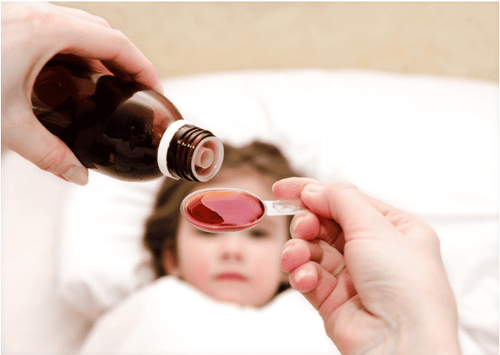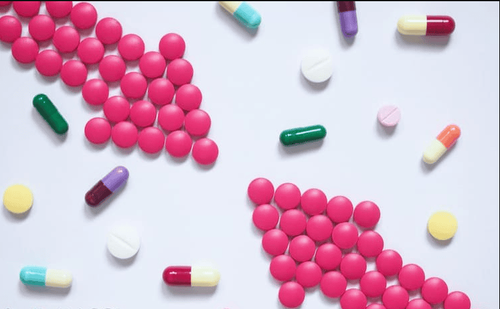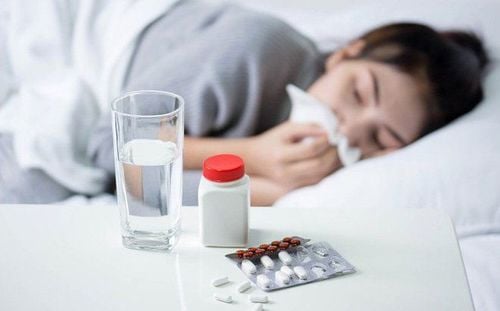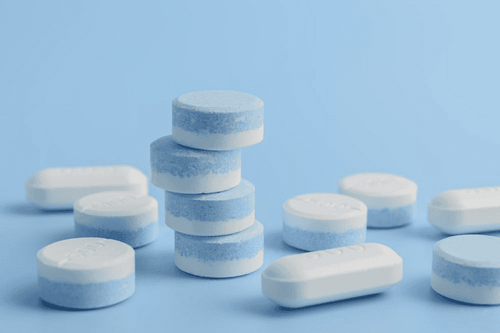This is an automatically translated article.
Children are more sensitive to drugs than adults. If injected at the wrong dose or at the wrong time, even benign over-the-counter drugs can become ineffective or harmful.
1. Give your child safe and effective medicine with the advice of a doctor
In order for children to take medicine safely, mothers need to ask for the following information after being prescribed the drug, including:
Main effects and side effects of the drug When does the drug start taking effect? In how long? How long does the drug last? Does it interact with any other medications you are taking? Does the medicine need to be stored in a refrigerator, where there is high temperature or light? What should I do if I accidentally give my child an overdose of medicine? Give medicine to mix food to eat with? Are there any foods to avoid while taking the drug? Is it necessary to keep children out of the sun while taking this medicine? Before going home, make sure you understand the dose, how, and when to use the medicine. If you buy over-the-counter medication, ask your doctor or pharmacist if it is safe for your child. If the dosage is not indicated on the package, do not use it. Ask about side effects and drug interactions. Make a list with your doctor or pharmacist about any allergies your child has.
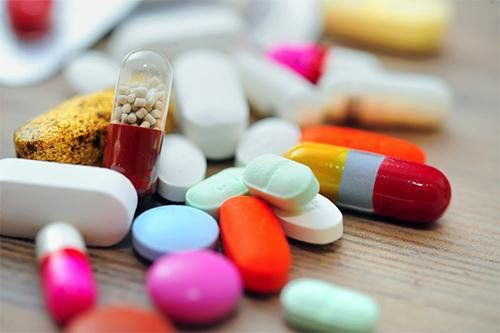
Cha mẹ cần nắm được liều lượng, cách thức và thời điểm cho trẻ sử dụng thuốc
2. How to give your child the right dose of medicine
How to give children the right dose of medicine? Read the label carefully and follow the instructions on the package. If you do not understand the instructions, call your pharmacist or doctor. Specifically, to measure the correct dose of medicine for children, you need to note the following:
Read the instructions and measure the dose in good lighting conditions to limit confusion. Be aware that some over-the-counter infant medications, like infant acetaminophen, are concentrated forms. (Do not use for older children with the same dose). Know your child's weight. Some drugs are measured based on weight or both weight and age. Be sure to shake liquid medicines before giving them to your child if it says on the label. This ensures all drug ingredients are distributed evenly. Do not confuse teaspoon and tablespoon. Almost no medicine uses a tablespoon to measure. Do not predict the dose. Keep in mind: 1 milliliter (ml) = 1 cc and 1 teaspoon = 5 cc to convert the teaspoon and syringe accordingly. Never give a child more medicine than is recommended on the label, even if the child has a severe cold, ear infection, sore throat, or fever. Drug dosage is designed based on health safety criteria, not disease severity. Call your doctor if you notice any unwanted side effects. If you give your child too much medicine, check with your doctor or pharmacist to be sure. If your child is vomiting and can't handle it, let the doctor know to choose an alternative method such as injections or suppositories to make sure the child receives the necessary treatment. Do not give your child a prescription from another child, an old prescription containing aspirin can cause Reye's syndrome.
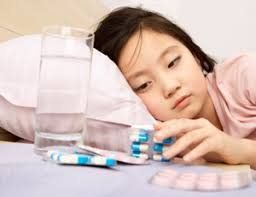
Đọc nhãn thuốc và cho trẻ uống thuốc theo dướng dẫn sử dụng trên bao bì
3. How to give children effective medicine, avoid missing dose?
To make sure your child receives the right amount of medicine, you should use the correct tool that was provided with the medicine such as a spoon, syringe or measuring cup. It is best to use plastic cylinders. For infants, a syringe will help the child take medicine better than a spoon because it can be sure to get all the medicine into the mouth and down the throat.
If the syringe is used to give the medicine to the child and the child still tries to spit it out, use your finger to pull the baby's cheek away and try pushing the medicine into either cheek. Keep your finger in your child's mouth until he swallows the medicine.
Mothers can also use spoons to feed their babies but they are often difficult to pour into the baby's mouth.
4. Give your child the right medicine the right number of times a day
Read the label carefully to know the number of times to give the medicine and the interval between doses. If the label says "4 times a day", give it to your child 4 times after waking up without waking. If the directions say "every 6 hours," you'll have to find out if your child needs the medication around the clock.
If it is a prescription drug, ask the doctor who prescribed it. If it is an over-the-counter medication, ask your pharmacist. You should also look at the notes on your prescription about taking your medication before, during, or after a meal and what foods or medications to avoid in combination.

Cho trẻ uống thuốc đúng số lần trong ngày theo đơn của bác sĩ
5. Reduce bitterness for medicine to stimulate children to drink
Children may resist taking medicine if it is bitter. If this is the case, you can ask your pharmacist about medicines that are mixed with flavorings to make them more palatable. Do not mix the medicine into a bottle or cup of juice because if you don't finish it, your baby will not get the full dose.
If your baby is old enough to eat solid foods, you can ask your doctor about tablets, which are crushed and mixed with some yogurt or apple sauce. You should not say that medicine is "candy," but rather that medicine is a treatment that can make it easier for a child to take it, but it can also be counterproductive for some children.

Bạn có thể hỏi dược sĩ về loại thuốc có trộn với hương liệu để kích thích trẻ uống
6. Safe storage of medicines
Try to keep the medicine in the original pack. If you lose the medicine label, throw it away. Making predictions about the dose is not worth the risk to your child's health.
Many antibiotics need to be refrigerated. Some can be left on the counter for a few minutes or tucked in a purse or bag to drive to daycare or school. Others need to be kept cool constantly, at home and on the go.
Keep medicines that do not need to be used in the refrigerator, in a cool, dry place. Don't keep them in the medicine cabinet near the bathroom, as the medicine can get damp from the shower. Keep all medicines safely out of the reach of children and follow your doctor's advice about storing and using them.
To ensure health as well as avoid side effects, parents need to use the right dose before using the drug, carefully read the label, the expiry date, how to use, preserve or follow the instructions. doctor.
For children to be healthy and develop well, it is necessary to have a nutritious diet in terms of quantity and quality balance. If children are not provided with adequate and balanced nutrients, it will lead to diseases of excess or lack of nutrients, which adversely affect the comprehensive development of children in terms of physical, mental and motor skills.
Children who do not eat properly are at risk of micro-mineral deficiency causing anorexia, growth retardation, malabsorption,... If they notice the above signs, parents should supplement their children with products. The supplement contains lysine, essential micro-minerals and vitamins such as zinc, chromium, selenium, and B vitamins to help fully meet the nutritional needs of children. At the same time, these essential vitamins also support digestion, enhance nutrient absorption, help improve anorexia, and help children eat well.
Parents can learn more:
Signs of zinc deficiency in children
Micronutrient deficiency and failure to gain weight in children
Please regularly visit Vinmec.com website and update useful information to take care of your child. Take care of the baby and the whole family.





